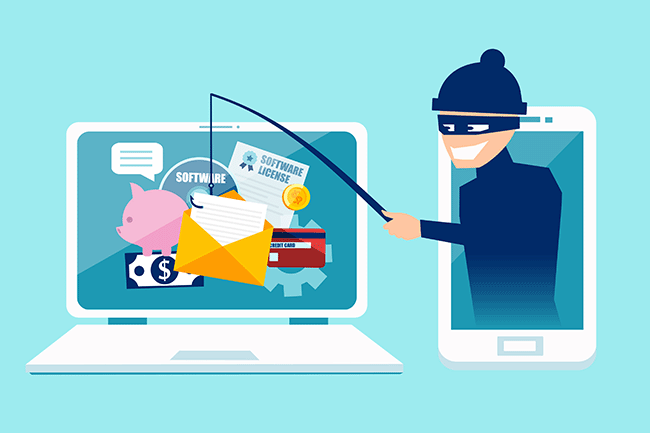Students are the next target. Teachers can be equally concerned about the kids’ online activity and safety. Internet safety tips for kids in the classroom should be part of their education curriculum, and parents should participate in parent-teacher conferences.
Did you know that some common things kids do online could put them at risk of getting bullied and harassed? Kids are curious about technology and the internet.
One of the biggest concerns for parents regarding their children’s online activity is what they’re exposed to. As much as parents would like to protect their children from all the dangers of the internet, they cannot possibly save them from every single danger.
Today’s technology is so advanced that children are exposed to many things their parents never knew existed.
But even though some things are unavoidable, teaching our children how to use the internet safely is important.
It’s been proven that children learn best when actively engaged in a task. Research has shown that students who work on projects can better process information. Students with access to technology are less likely to procrastinate because they are forced to do their work instead of watching TV or playing video games.

Teach internet safety in the classroom.
Today’s world is filled with technology, and children must understand how to use it safely. Kids should be taught basic computer skills in school to prepare for college and careers.
But as much as parents worry about their children’s safety online, it’s equally important that teachers teach their students about the internet and its dangers.
There are many ways to do this, and one of the best ways is to introduce the concept of internet safety in the classroom.
This is the perfect time to start teaching the basics of internet safety. If you’re unsure how to begin, here are some tips:
- Explain the basics of internet safety.
- Explain the different types of online harassment and bullying.
- Explain how to identify and report online threats.
- Explain how to avoid spreading online rumors and rumors.
- Explain how to use social media safely.
You can also go a step further and discuss internet safety. This can help you to gain your students’ trust, and they will feel safer around you.
One of the biggest issues children have with social media is that it is easily accessible and easy to use. Kids can learn to be unsafe on social media by watching their peers and older siblings.
The best way to teach children about social media is to educate them on why they should not be on social media in the first place. This is a tricky task, as many parents want their kids to keep up with them and their friends on social media.
Instead, parents should teach their children to be cautious about social media. This means that children should avoid using personal information, such as their phone number, address, or any other personal information that can be used to identify them.
They should also limit their time on social media and only use it to connect with people they know.
Discuss privacy issues
In recent years, many parents have become concerned about how much of their children’s online activity is recorded, shared, and saved by third parties.
This is especially concerning for young children who are curious about technology but are unaware of the risks that come with it.
It’s important to discuss with your child the importance of keeping their personal information private. Please encourage them to avoid sending personal information on the internet, to use privacy settings wisely, and only to share information they trust.
Discuss cyberbullying
You don’t need to be a parent to know that cyberbullying is a huge problem. According to a study by the Pew Research Center, half of the teens have witnessed someone being bullied online.
While it’s true that most bullying takes place offline, it can still affect children and teens. Cyberbullying includes any actions performed online, including texting, posting, emailing, and other forms of social media.
Because many children and teens spend a lot of time on the internet, they are often the target of bullies. These bullies can be people who are close to them or total strangers.
When it comes to dealing with bullies, it is important to keep in mind that bullying can happen anywhere. Parents must talk to their children about cyberbullying and teach them how to respond.
One way to deal with bullies is to ignore them. Bullies tend to lose interest in their victims after they stop responding. This is especially true for cyberbullying.
If you have a child being bullied, you should encourage them to document the bullying. You can also encourage them to reach out to others who are being forced.
Frequently asked a question about Internet Safety Tips.
Q: How can I protect myself from predators?
A: Predators are on the Internet, Facebook, Twitter, and Instagram. You can protect yourself by ensuring that the person you’re communicating with is who they claim to be. Also, keep in mind that anyone can be a predator. Don’t send money or any other form of payment to someone you don’t know. Just say no if someone contacts you for money or personal information.
Q: Can someone steal my identity if they steal my photos?
A: Yes, but it takes time. Your images could be out there for years.
Q: Are there any ways I can protect myself from stalkers?
A: You can do certain things, but there’s not always a way to stop someone from being a stalker. There are ways to make yourself less likely to become a victim if someone sends you a message saying.
Top Myths about Internet Safety Tips
- Internet use is a distraction from learning.
- Internet safety means only keeping up with updates on security programs.
- The best security is the ability to control technology.
Conclusion
The internet has become a very dangerous place for kids. Kids spend a large amount of time on their phones and computers. It’s easy to see how this can be a problem.
They’re constantly exposed to new things and sometimes drawn to risky situations online.
In my opinion, the best way to keep kids safe online is to teach them the importance of the internet. Explain to them why it’s important only to use it when necessary and what their responsibilities are when they do.





